After enduring back-to-back crises in recent years, the British Virgin Islands are beginning to see the return of tourists and foreign investors.
A Four-Bedroom Villa in the British Virgin Islands
$1.85 MILLION
This four-bedroom villa with Atlantic Ocean and Caribbean Sea views sits on a hillside on the northwest coast of Tortola, in the British Virgin Islands.
Built in the late 2000s from the shell of a Palladian-style home, the 6,000-square-foot Caribbean-style house, which is masonry and concrete with a standing seam metal roof, sits on a 0.81-acre lot of terraced gardens with winding paths, fruit trees and flowering shrubs. Three pavilions are connected by a patio tiled in coral stone with delicate fossil patterns surrounding a 24-foot swimming pool.
The house, which has stormproof windows, sustained minor damage in 2017 during Hurricane Irma, a storm that decimated parts of the British Virgin Islands, but it has been fully restored, said Anne Fields, who owns the home with her husband, Greg Fields.
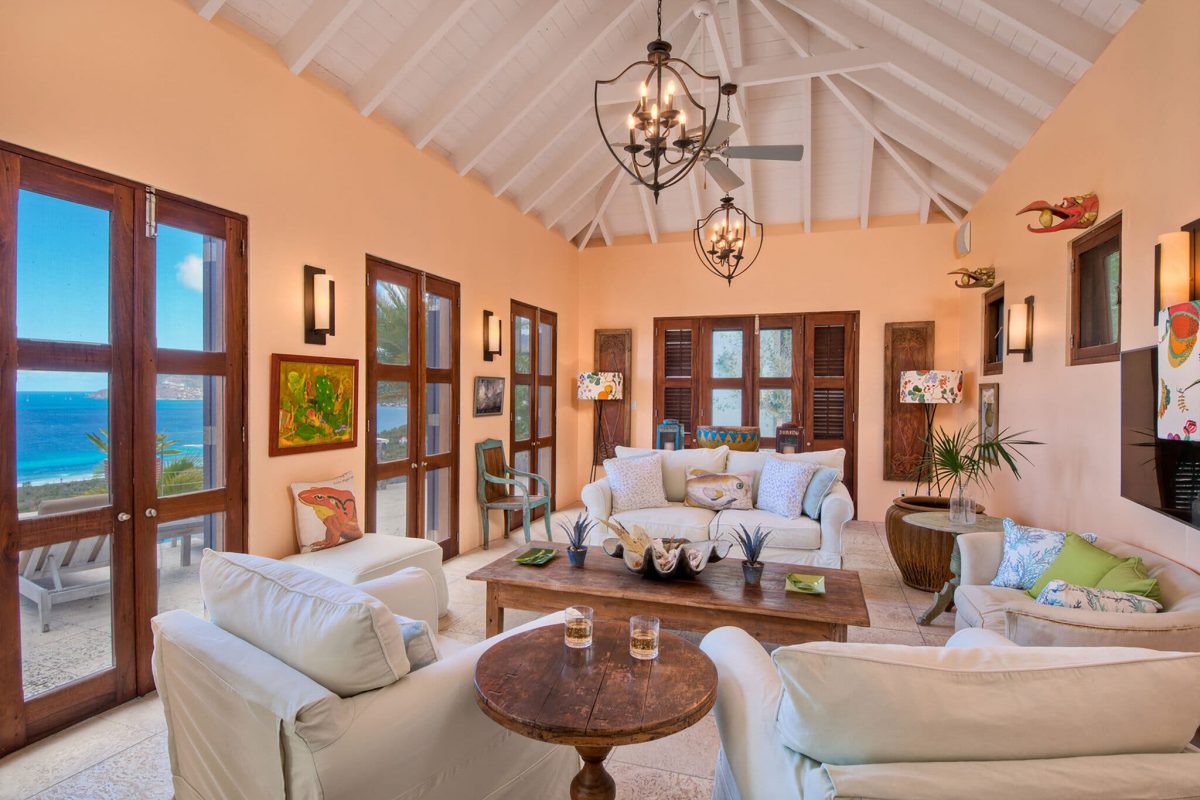
Credit…Coldwell Banker British Virgin Islands Real Estate
“We lost the parking pergola, and a couple of shutters and had some water damage,” Ms. Fields said. “A tree came through a glass dining room door, so we had to redo the floors. But we were very lucky.”
From the pergola, stone stairs wind up the terraced hillside past the two-bedroom guesthouse to arrive at the pool deck, which is the main level. The cream-colored house has window frames and blue-painted shutters. Three sets of French doors open to the living pavilion, which adjoins a wet bar and indoor grill with its own arched doors opening to the pool.
“The indoor barbecue is great, because if it’s raining or blowing, you can cook out and you’re not out,” Ms. Fields said.
A pass-through with a counter connects to a kitchen with Corian countertops, mahogany cabinets and travertine floor tiles. Adjacent to the kitchen is a formal dining room, which has mahogany floors and air-conditioning. Several sets of French doors open to a spacious veranda with a dining area. Beyond the dining room, a mahogany staircase ascends to the second-floor primary suite, which has wood floors, built-in louvered closets and a den.
From the main level, stairs descend to a bedroom suite with a secluded deck overlooking the water.
Across the pool deck, the two-story guesthouse has two bedroom suites, one with its own porch and the other with a private garden terrace.
The villa has a government permit to rent on a short-term basis, Ms. Fields said. Before Hurricane Irma, when it was frequently rented weekly, the annual income was around $100,000, she said.
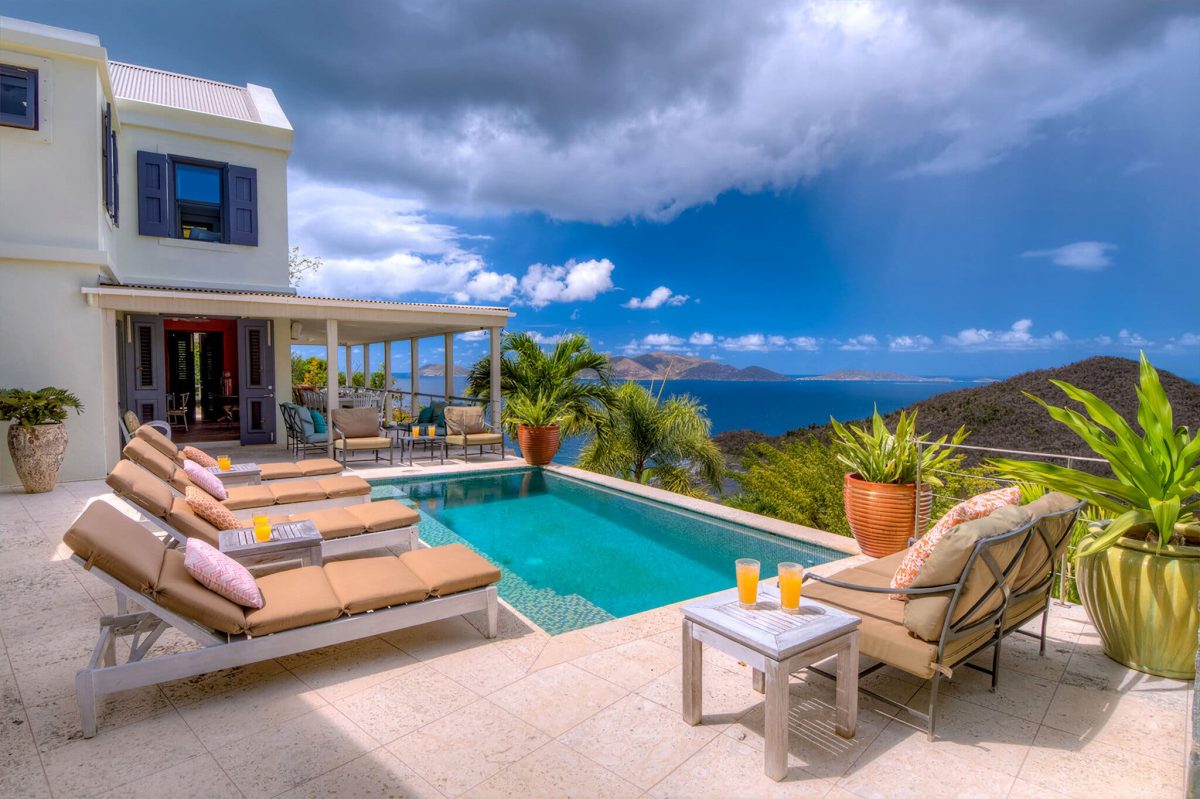
Credit…Coldwell Banker British Virgin Islands Real Estate
The house is part of the Belmont Estate, a planned residential community of tree-lined streets winding through hills popular with walkers and cyclists. It overlooks Belmont Pond, a freshwater lagoon frequented by many bird species, including an occasional flock of flamingoes, Ms. Fields said. There are also expansive views over Long Bay Beach and out to Jost Van Dyke.
Soper’s Hole, a short walk down the hill or a five-minute drive, has restaurants, shops, a grocery store and a marina, Ms. Fields said. Numerous beaches, including Smuggler’s Cove, with excellent snorkeling and Long Bay Beach for surfers, are also nearby. A ferry dock has service to Jost Van Dyke, as well as St. John and St. Thomas in the U.S. Virgin Islands. Terrance B. Lettsome International Airport is a 50-minute drive away.
Market Overview
The Virgin Islands, a British Overseas Territory comprising more than 50 islands in the northern Caribbean Sea, has endured back-to-back blows in recent years: Hurricane Irma in 2017 and then the onset of the coronavirus pandemic in 2020.
The housing market peaked in 2016 with the debut of several upscale resort developments on Virgin Gorda, one of the larger islands along with Tortola, Anegada and Jost Van Dyke. The following year, Hurricane Irma damaged about 80 percent of the housing stock, along with many tourism businesses, brokers said. It was boating enthusiasts that helped keep the tourism sector from collapsing.
“The private sector were very good at picking themselves up, and the yachting industry in particular did extremely well at getting boats to come back here,” said Edward Childs, a director at the brokerage Smiths Gore BVI.
After two years of reconstruction, during which many locals acquired and repaired damaged properties, tourists began to return to the islands, renting villas and staying at newly refurbished hotels in the winter high season of 2019-20.
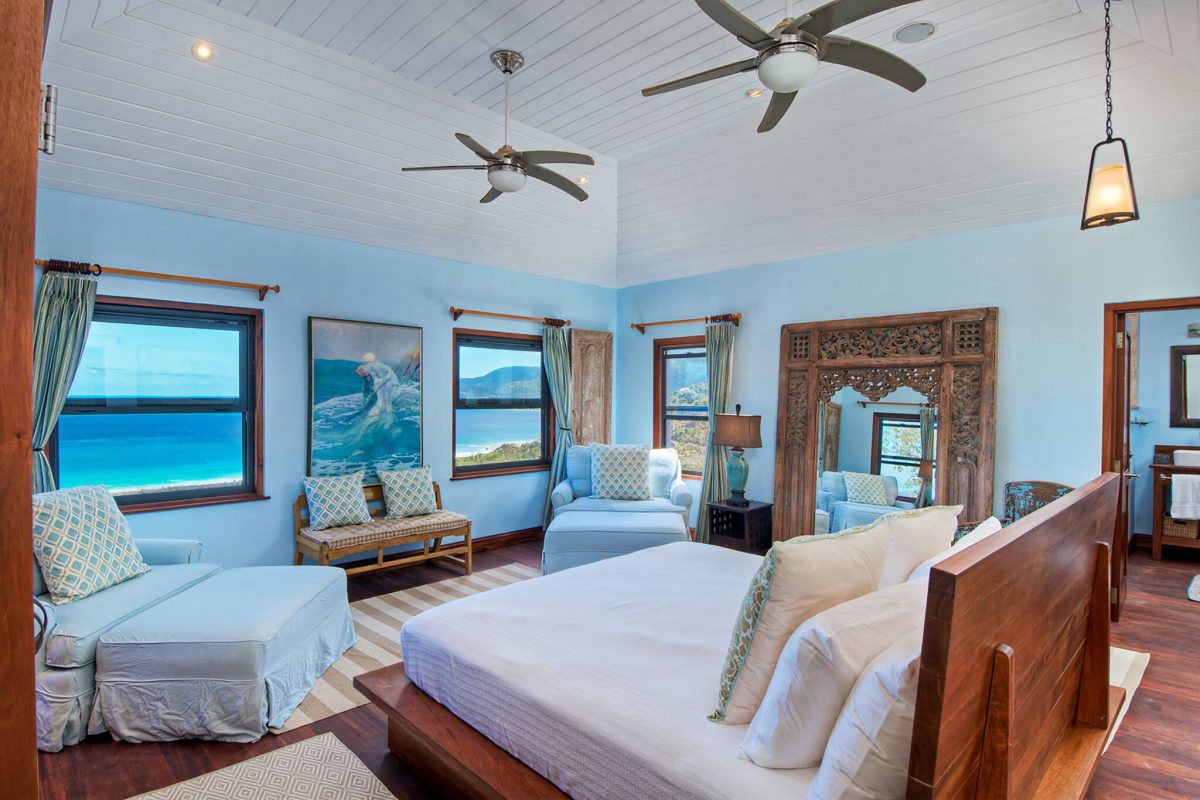
Credit…Coldwell Banker British Virgin Islands Real Estate
“By 2019, most of the hurricane-bashed homes were sold or had been rebuilt, though not all,” said Chris Smith, a managing broker with Coldwell Banker British Virgin Islands Real Estate, which has the listing for this home. “We were trying to get back to normal in 2019 when Covid hit.”
The pandemic brought a lockdown and curfews, as well as some of the more onerous travel restrictions in the Caribbean, said Edward de Mallet Morgan, a partner in global super prime residential at Knight Frank. “I think the main reason for the prohibitive restrictions is the islands are a big financial center, a big insurance center, so tourism isn’t as important as it is in some other Caribbean countries,” he said.
Once again, domestic buyers stepped in to sustain the housing market, buoyed by a stamp-duty exemption for local purchasers introduced in 2020 and extended into 2021. Foreign investors began returning to the Virgin Islands in 2021, as they have throughout much of the Caribbean, Mr. Childs said.
“For the last two years, we’ve been used to seeing hardly anybody around in the high season, but now we’ve got the cruise ships back, we’ve got people staying in hotels and villas, and we’ve got the yachts back,” he said. “You get the sense that for this high season, we’ve really got people back in the British Virgin Islands, and it’s about time.”
Data on housing trends in the Virgin Islands is not always current, because of landholding license processing times for foreigners, and the Department of Land Registry doesn’t issue reports, brokers said. However, according to Mr. Childs, from 2018 to the third quarter of 2021 there were 271 house sales, most on Tortola, where the seat of government and the financial sector are located, and on Virgin Gorda, a tourist island with spectacular beaches.
Locals accounted for 205 of those sales, at an average price on Tortola of $445,000 and on Virgin Gorda of $542,500. Sales to foreigners averaged $740,000 on Tortola and $1.415 million on Virgin Gorda, Mr. Childs said.
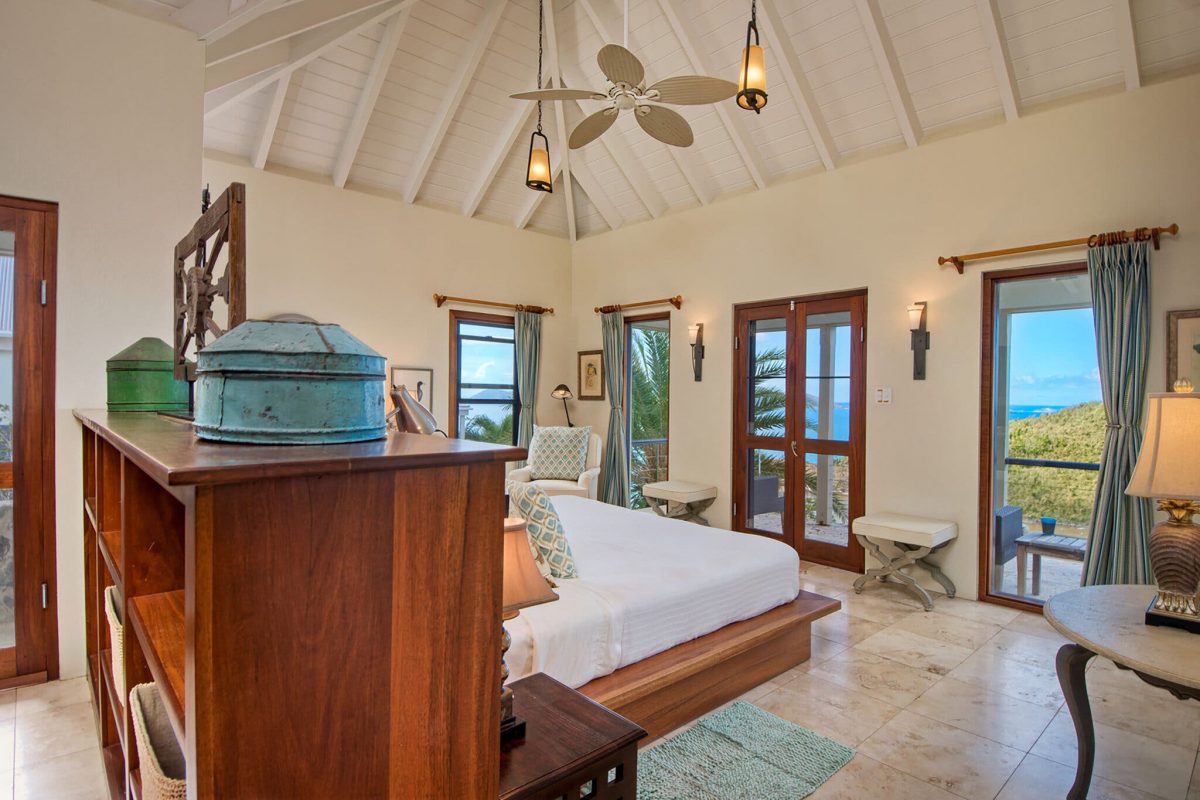
Credit…Coldwell Banker British Virgin Islands Real Estate
The British Virgin Islands have been slower to develop and are relatively affordable compared with other Caribbean islands, due in large part to the difficulty of getting to them. “One of the reasons people love the BVI is that it does feel quite wild,” Mr. de Mallet Morgan said. “That kind of slightly more barefoot, rugged, sort of sailing vibe is something that a lot of people like.”
Most foreign buyers are looking for homes in the range of $1 million to just over $2 million, Mr. Childs said. A three-bedroom home with a pool typically ranges from $1.75 million to $2.5 million on Tortola or Virgin Gorda, while a four-bedroom house with a pool can get up to $3 million, he said.
“I think the difference between the BVI and other markets is the boating factor,” he said. “We’ve got so many islands to go and visit, and it’s easy to get out in boats, and you’re in sheltered water a lot of the time. So a house that’s got a dock, and there’s not many available, that’s obviously going to attract a premium.”
Who Buys in the Virgin Islands
About 75 percent of the foreign home buyers in the British Virgin Islands come from the United States, Mr. Smith said.
Most of the other foreign buyers are British, with a smattering of buyers from other European nations, such as Italy and France, Mr. Childs said. “Once you get into the higher price brackets, we tend to see more of an equal spread between the American and European buyers,” he said.
Buying Basics
There are some restrictions on foreign home buyers in the British Virgin Islands. For one, they have to apply to the government for a Non Belonger Land Holding License, brokers said. An appraisal, typically costing about 0.1 percent of the purchase price, must accompany that license application.
Buyers must also obtain a police certificate, bank statements and references, Mr. Smith said. “We always advise our buyers to hire a local lawyer,” he said. “It’s not cheap relative to what one might pay a lawyer in the United States, but very advisable.”
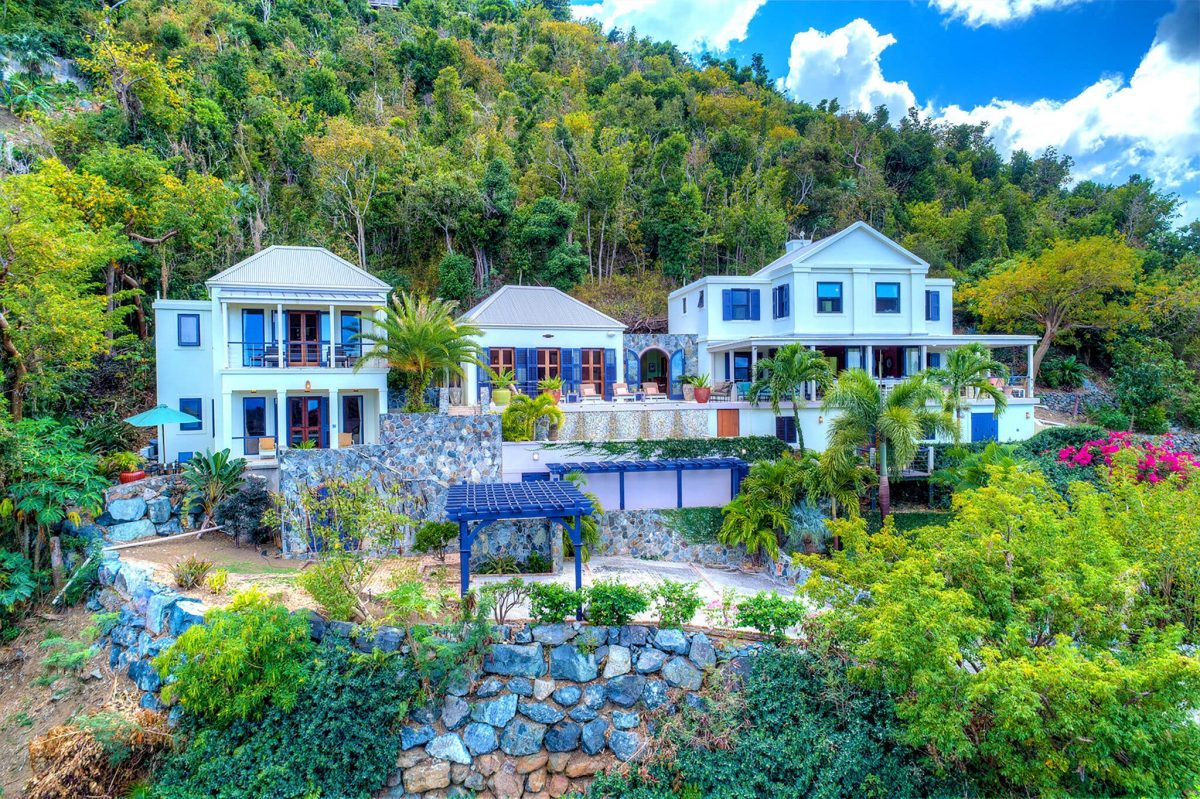
Credit…Coldwell Banker British Virgin Islands Real Estate
Legal fees are typically 2 percent on the first $50,000 and 1 to 1.5 percent after that, Mr. Smith said.
Including a stamp duty of 12 percent for foreign home buyers, total closing costs typically come to around 14 percent, he said. The broker commission, which is 5 to 6 percent on a home sale, is usually paid by the seller. Most retail banks will lend to foreign buyers, with financing available for roughly 70 percent of the home’s value at rates of about 5 percent, he said.
“But the processes are very cumbersome and not really designed to work alongside the Non Belongers Land Holding License process,” Mr. Smith said. “So most buyers pay in cash.”
Websites
-
BVI tourism: bvitourism.com
-
BVI government: bvi.gov.vg
Languages and Currency
English; United States dollar
Taxes and Fees
Annual property taxes on this home are about $500, and there is a $1,200 homeowners association fee, Ms. Fields said.
Contact
Chris Smith, Coldwell Banker British Virgin Islands Real Estate, 1-284-340-3000, coldwellbankerbvi.com
For weekly email updates on residential real estate news, sign up here. Follow us on Twitter: @nytrealestate.
Credit for this Article – New York Times & Chris Smith

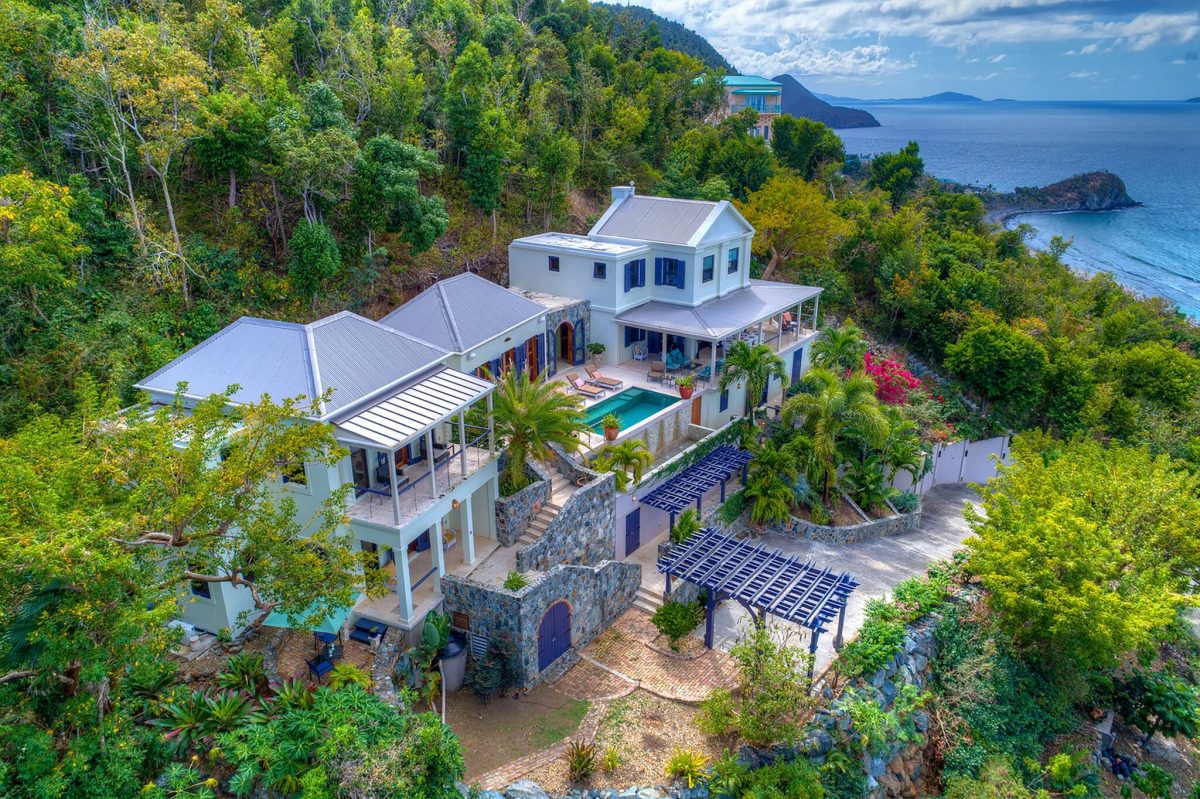
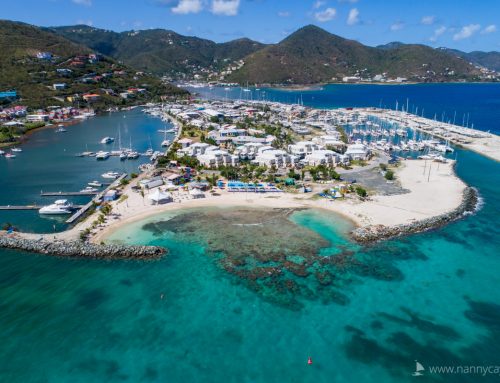
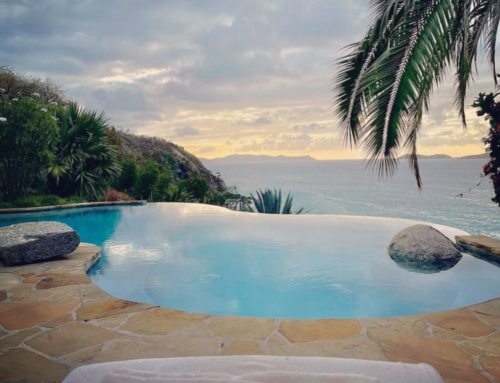
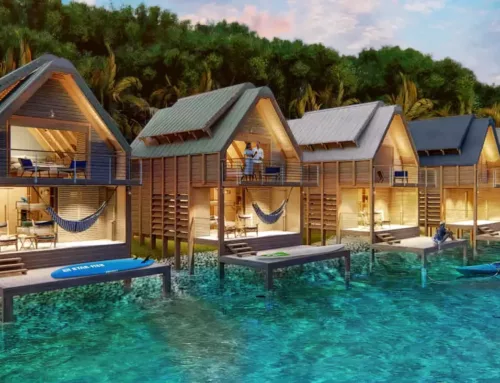
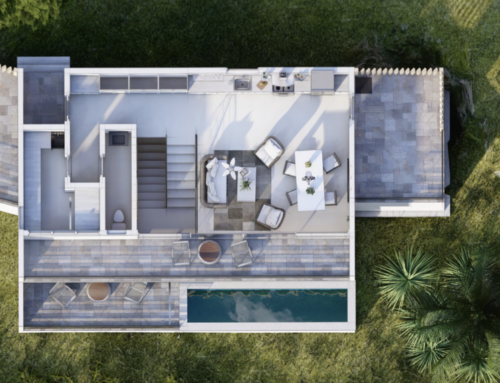
Pretty nice post. I just stumbled upon yor wesblog and wanted to say that I’ve
truly enjoyed surfing around your blog posts. After all I will be
subscribing to your rss feed and I hope youu write again very soon! https://www.Waste-Ndc.pro/community/profile/tressa79906983/
pin up kazino https://azerbaijancuisine.com/# pin-up online casino
pin up az
pin-up 306: pin up az – pin-up 306
reputable mexican pharmacies online: mexican pharmacy northern doctors – mexican drugstore online
https://northern-doctors.org/# pharmacies in mexico that ship to usa
mexican mail order pharmacies: northern doctors pharmacy – mexico drug stores pharmacies
medicine in mexico pharmacies [url=https://northern-doctors.org/#]mexican pharmacy northern doctors[/url] buying from online mexican pharmacy
https://northern-doctors.org/# purple pharmacy mexico price list
pharmacies in mexico that ship to usa: mexican northern doctors – buying from online mexican pharmacy
https://northern-doctors.org/# mexico drug stores pharmacies
mexican drugstore online: northern doctors pharmacy – medication from mexico pharmacy
mexico pharmacy: mexican pharmacy – mexican border pharmacies shipping to usa
https://northern-doctors.org/# pharmacies in mexico that ship to usa
buying prescription drugs in mexico: northern doctors – mexican rx online
medication from mexico pharmacy [url=https://northern-doctors.org/#]northern doctors pharmacy[/url] buying prescription drugs in mexico
http://northern-doctors.org/# mexican pharmaceuticals online
pharmacies in mexico that ship to usa: mexican pharmacy – mexico pharmacies prescription drugs
mexico pharmacy: reputable mexican pharmacies online – buying prescription drugs in mexico online
https://northern-doctors.org/# mexican online pharmacies prescription drugs
buying from online mexican pharmacy: purple pharmacy mexico price list – medicine in mexico pharmacies
https://northern-doctors.org/# buying prescription drugs in mexico
purple pharmacy mexico price list: Mexico pharmacy that ship to usa – pharmacies in mexico that ship to usa
mexico pharmacy: northern doctors pharmacy – reputable mexican pharmacies online
buying from online mexican pharmacy [url=http://northern-doctors.org/#]mexican pharmacy[/url] mexican online pharmacies prescription drugs
mexico drug stores pharmacies: northern doctors pharmacy – п»їbest mexican online pharmacies
https://northern-doctors.org/# mexican mail order pharmacies
purple pharmacy mexico price list: mexican pharmacy online – purple pharmacy mexico price list
purple pharmacy mexico price list [url=https://northern-doctors.org/#]northern doctors[/url] mexico drug stores pharmacies
medication from mexico pharmacy: mexican pharmacy – п»їbest mexican online pharmacies
http://northern-doctors.org/# buying prescription drugs in mexico
mexico pharmacies prescription drugs: mexican northern doctors – mexico pharmacies prescription drugs
http://northern-doctors.org/# mexico pharmacies prescription drugs
buying prescription drugs in mexico online: northern doctors pharmacy – purple pharmacy mexico price list
buying prescription drugs in mexico: mexico pharmacies prescription drugs – best online pharmacies in mexico
purple pharmacy mexico price list: mexican northern doctors – pharmacies in mexico that ship to usa
mexican online pharmacies prescription drugs [url=https://northern-doctors.org/#]mexican northern doctors[/url] purple pharmacy mexico price list
mexico pharmacy: mexican pharmacy northern doctors – п»їbest mexican online pharmacies
http://northern-doctors.org/# mexico pharmacies prescription drugs
purple pharmacy mexico price list: northern doctors pharmacy – buying prescription drugs in mexico online
reputable mexican pharmacies online: northern doctors – mexican border pharmacies shipping to usa
https://northern-doctors.org/# mexican drugstore online
mexican online pharmacies prescription drugs: northern doctors – mexican pharmaceuticals online
https://northern-doctors.org/# best online pharmacies in mexico
buying prescription drugs in mexico: northern doctors – п»їbest mexican online pharmacies
п»їbest mexican online pharmacies [url=http://northern-doctors.org/#]mexican northern doctors[/url] medicine in mexico pharmacies
reputable mexican pharmacies online: mexican pharmacy online – reputable mexican pharmacies online
http://northern-doctors.org/# mexico pharmacy
п»їbest mexican online pharmacies: northern doctors – best online pharmacies in mexico
mexico pharmacies prescription drugs: northern doctors pharmacy – pharmacies in mexico that ship to usa
http://northern-doctors.org/# pharmacies in mexico that ship to usa
п»їbest mexican online pharmacies: mexican pharmacy online – mexico pharmacies prescription drugs
http://northern-doctors.org/# buying prescription drugs in mexico
mexican pharmacy: mexican pharmacy northern doctors – mexican mail order pharmacies
buying from online mexican pharmacy [url=https://northern-doctors.org/#]mexican northern doctors[/url] mexico pharmacies prescription drugs
medicine in mexico pharmacies: mexican pharmacy northern doctors – mexico pharmacies prescription drugs
https://northern-doctors.org/# mexican pharmacy
http://cmqpharma.com/# buying prescription drugs in mexico
mexico drug stores pharmacies
mexican mail order pharmacies [url=https://cmqpharma.com/#]mexican online pharmacy[/url] mexican pharmacy
medicine in mexico pharmacies
http://cmqpharma.com/# reputable mexican pharmacies online
purple pharmacy mexico price list
mexican pharmaceuticals online: cmq mexican pharmacy online – purple pharmacy mexico price list
mexican drugstore online [url=https://cmqpharma.com/#]cmq pharma mexican pharmacy[/url] mexico drug stores pharmacies
medication from mexico pharmacy [url=https://cmqpharma.com/#]cmq pharma[/url] purple pharmacy mexico price list
mexican mail order pharmacies [url=http://cmqpharma.com/#]mexican pharmacy online[/url] mexican pharmaceuticals online
mexican border pharmacies shipping to usa [url=https://cmqpharma.online/#]cmq pharma[/url] mexican border pharmacies shipping to usa
п»їbest mexican online pharmacies [url=https://cmqpharma.com/#]mexico pharmacy[/url] mexican pharmaceuticals online
mexico pharmacy [url=https://cmqpharma.online/#]mexico pharmacy[/url] best online pharmacies in mexico
mexico drug stores pharmacies [url=http://cmqpharma.com/#]mexico pharmacy[/url] mexico pharmacies prescription drugs
https://cmqpharma.com/# mexican pharmacy
mexican online pharmacies prescription drugs
mexican pharmaceuticals online [url=https://cmqpharma.com/#]cmq pharma[/url] mexican rx online
india online pharmacy: reputable indian pharmacies – indian pharmacy paypal
northern pharmacy canada: legal canadian pharmacy online – reddit canadian pharmacy
best india pharmacy: india pharmacy mail order – india pharmacy
https://foruspharma.com/# buying prescription drugs in mexico online
canadian pharmacy online ship to usa: canadian pharmacy 24h com – canadian pharmacy ltd
legal to buy prescription drugs from canada [url=https://canadapharmast.online/#]canadian pharmacies that deliver to the us[/url] maple leaf pharmacy in canada
canada pharmacy [url=http://canadapharmast.com/#]pharmacy canadian superstore[/url] canadian pharmacy ed medications
http://foruspharma.com/# mexican mail order pharmacies
mexican online pharmacies prescription drugs: buying prescription drugs in mexico – best online pharmacies in mexico
Online medicine home delivery: buy prescription drugs from india – indian pharmacy
reputable mexican pharmacies online: medicine in mexico pharmacies – mexican online pharmacies prescription drugs
mexican drugstore online: purple pharmacy mexico price list – medicine in mexico pharmacies
reputable indian pharmacies [url=https://indiapharmast.com/#]pharmacy website india[/url] reputable indian pharmacies
mexico drug stores pharmacies: mexican rx online – best online pharmacies in mexico
http://indiapharmast.com/# world pharmacy india
real canadian pharmacy: canadian neighbor pharmacy – pharmacy canadian
reputable mexican pharmacies online: mexican rx online – mexican mail order pharmacies
https://canadapharmast.online/# canada pharmacy online
top 10 pharmacies in india: mail order pharmacy india – pharmacy website india
online shopping pharmacy india: п»їlegitimate online pharmacies india – indian pharmacy paypal
legit canadian pharmacy [url=https://canadapharmast.online/#]canada pharmacy world[/url] buy prescription drugs from canada cheap
recommended canadian pharmacies: canada drugstore pharmacy rx – reputable canadian online pharmacy
online pharmacy india [url=http://indiapharmast.com/#]buy prescription drugs from india[/url] indianpharmacy com
best india pharmacy: india online pharmacy – india pharmacy
http://canadapharmast.com/# reputable canadian online pharmacies
medication from mexico pharmacy: mexican pharmaceuticals online – mexico pharmacy
top online pharmacy india: best india pharmacy – buy prescription drugs from india
canadian discount pharmacy: canada pharmacy reviews – canadian drug pharmacy
mexican rx online: mexican rx online – mexican drugstore online
https://canadapharmast.com/# canadian pharmacy
purple pharmacy mexico price list: pharmacies in mexico that ship to usa – reputable mexican pharmacies online
indian pharmacies safe: mail order pharmacy india – reputable indian pharmacies
http://amoxildelivery.pro/# amoxicillin 500mg capsules price
where to buy generic clomid tablets [url=https://clomiddelivery.pro/#]how can i get cheap clomid online[/url] can i order generic clomid now
where can i get cheap clomid: order clomid without dr prescription – where can i buy clomid without insurance
https://doxycyclinedelivery.pro/# where can you get doxycycline
cost of amoxicillin 875 mg [url=https://amoxildelivery.pro/#]where can i buy amoxicillin without prec[/url] buy amoxicillin 500mg online
https://ciprodelivery.pro/# ciprofloxacin 500 mg tablet price
https://amoxildelivery.pro/# buy amoxicillin 500mg usa
buy cipro online canada: ciprofloxacin – ciprofloxacin 500mg buy online
https://paxloviddelivery.pro/# Paxlovid over the counter
where buy cheap clomid without dr prescription [url=http://clomiddelivery.pro/#]cost generic clomid without insurance[/url] generic clomid without dr prescription
http://doxycyclinedelivery.pro/# doxycycline antimalarial
https://doxycyclinedelivery.pro/# where to buy doxycycline over the counter
ciprofloxacin generic price [url=http://ciprodelivery.pro/#]ciprofloxacin 500mg buy online[/url] cipro for sale
https://paxloviddelivery.pro/# paxlovid generic
can i purchase amoxicillin online: amoxicillin 500mg price canada – buy amoxicillin 250mg
https://clomiddelivery.pro/# can i get clomid online
ampicillin amoxicillin: amoxicillin 500mg capsules price – amoxicillin medicine
https://doxycyclinedelivery.pro/# doxycycline caps 100mg
buy doxycycline 100 mg tablet [url=http://doxycyclinedelivery.pro/#]doxycyline online[/url] doxycycline over the counter usa
https://amoxildelivery.pro/# amoxicillin cost australia
https://amoxildelivery.pro/# generic for amoxicillin
paxlovid buy [url=https://paxloviddelivery.pro/#]paxlovid pharmacy[/url] Paxlovid over the counter
http://clomiddelivery.pro/# get cheap clomid no prescription
п»їpaxlovid: Paxlovid over the counter – Paxlovid buy online
https://doxycyclinedelivery.pro/# doxycycline 40 mg price
https://paxloviddelivery.pro/# paxlovid pharmacy
cipro online no prescription in the usa [url=https://ciprodelivery.pro/#]buy ciprofloxacin over the counter[/url] buy ciprofloxacin
https://amoxildelivery.pro/# how much is amoxicillin
doxycycline cap tab 100mg [url=https://doxycyclinedelivery.pro/#]3626 doxycycline[/url] doxycycline cheap
how to get clomid pills: rx clomid – cost of cheap clomid without a prescription
https://clomiddelivery.pro/# cost generic clomid no prescription
https://clomiddelivery.pro/# can you get generic clomid pills
http://ciprodelivery.pro/# ciprofloxacin 500 mg tablet price
can you get generic clomid without rx [url=http://clomiddelivery.pro/#]can i buy cheap clomid for sale[/url] order cheap clomid now
http://amoxildelivery.pro/# amoxicillin 500 mg capsule
paxlovid india [url=http://paxloviddelivery.pro/#]paxlovid covid[/url] paxlovid covid
buy cipro cheap: cipro 500mg best prices – buy cipro online canada
http://doxycyclinedelivery.pro/# doxycycline 100mg price south africa
https://doxycyclinedelivery.pro/# buy doxycycline 500mg
ciprofloxacin: buy ciprofloxacin over the counter – buy ciprofloxacin
http://ciprodelivery.pro/# ciprofloxacin
doxycycline 100mg tablets no prescription [url=http://doxycyclinedelivery.pro/#]discount doxycycline[/url] doxycycline iv
https://ciprodelivery.pro/# п»їcipro generic
http://ciprodelivery.pro/# buy ciprofloxacin
buy paxlovid online [url=http://paxloviddelivery.pro/#]Paxlovid over the counter[/url] buy paxlovid online
https://doxycyclinedelivery.pro/# doxycycline 100mg price
buy cipro online canada: cipro – ciprofloxacin over the counter
https://doxycyclinedelivery.pro/# doxycycline order online
buy cipro online: п»їcipro generic – buy cipro online usa
http://amoxildelivery.pro/# medicine amoxicillin 500mg
buy online doxycycline [url=https://doxycyclinedelivery.pro/#]buy doxycycline in usa[/url] can you buy doxycycline over the counter australia
http://doxycyclinedelivery.pro/# buy doxycycline online 270 tabs
doxycycline capsules [url=https://doxycyclinedelivery.pro/#]doxycycline 100 mg tablets[/url] doxycycline online without prescription
https://clomiddelivery.pro/# where buy cheap clomid pill
https://clomiddelivery.pro/# how to buy cheap clomid price
where can i buy amoxicillin without prec: antibiotic amoxicillin – amoxicillin 500mg capsules antibiotic
doxycycline without a prescription: odering doxycycline – doxycycline buy online us
how much is amoxicillin: amoxicillin without rx – where to get amoxicillin over the counter
can you get cheap clomid online: can you get clomid without insurance – can you buy generic clomid
where to purchase doxycycline: how much is doxycycline – doxy